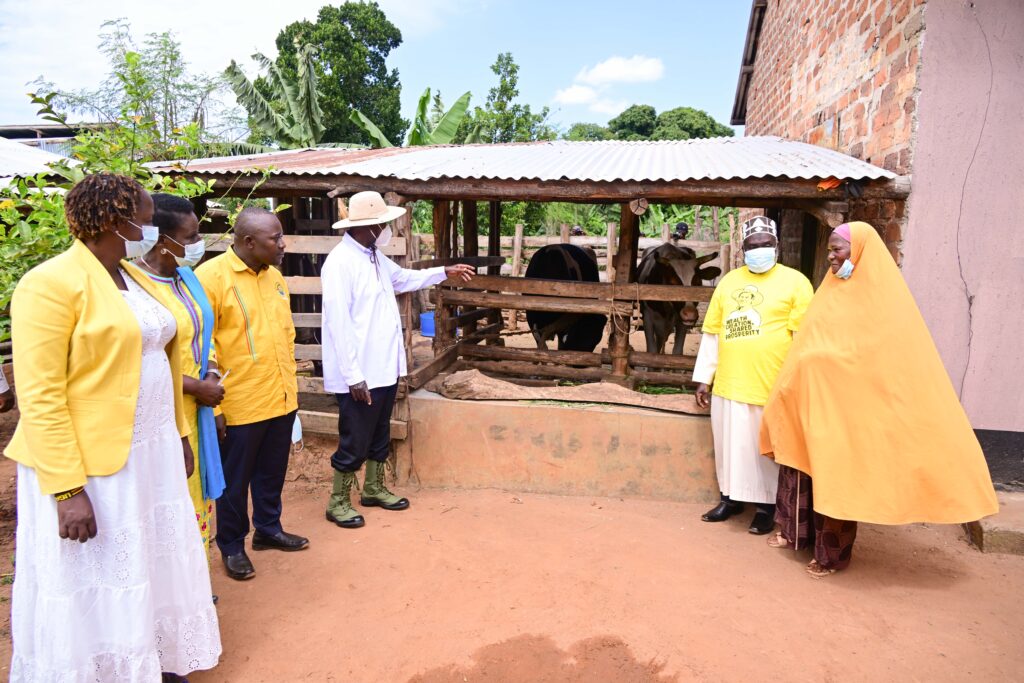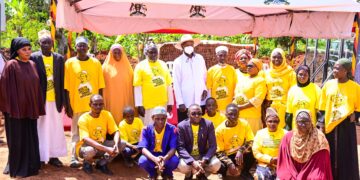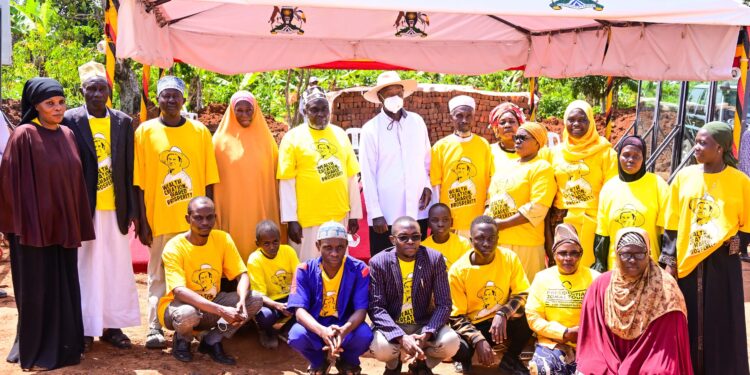President Yoweri Kaguta Museveni has hailed Hajji Muhammad Yusuf Zziwa, a progressive farmer from Sselinya B Village in Mpigi District, for successfully implementing the National Resistance Movement (NRM)’s four-acre model farming strategy, turning a small plot of land into a thriving commercial enterprise.
While touring Zziwa’s Zimu Demonstration Farm, President Museveni commended the farmer for embracing modern agricultural practices that promote household income generation, even on limited land. “Hajji Zziwa is a shining example of what our four-acre model can achieve when applied with discipline and focus,” Museveni remarked.
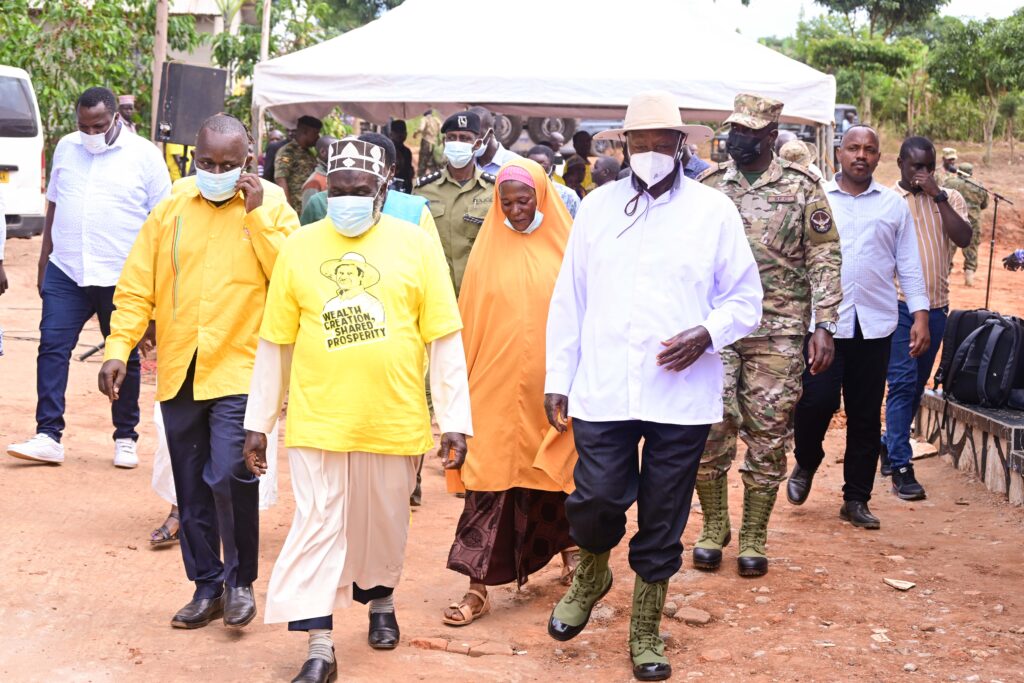
The four-acre model, developed under the NRM’s wealth creation strategy, recommends using one acre for coffee, another for fruits, a third for pasture to support zero-grazing livestock, and the fourth for food crops for family use. Supplementary enterprises like poultry, piggery (for non-Muslims), and fish farming are also encouraged, depending on location and suitability. The President also urged farmers to explore cocoa and palm oil, citing their high profitability on small land holdings.
In a show of government support, Museveni pledged to provide a solar-powered water pump to alleviate the village’s water shortages. He also donated a pickup truck to Hajji Zziwa, aimed at easing the transportation burden of poultry feed, currently sourced from distant Mukono.
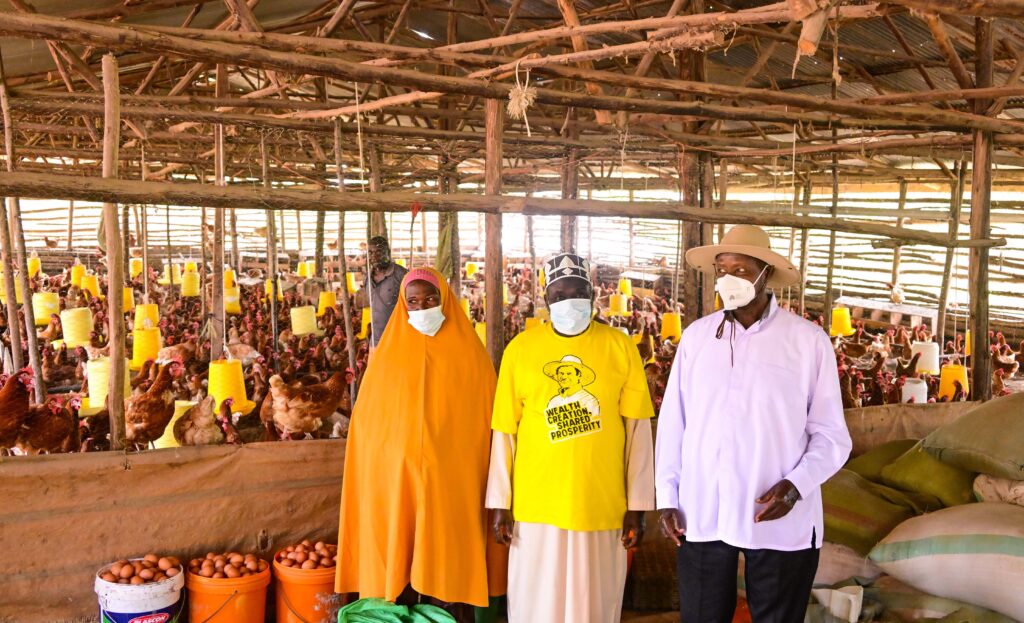
Hajji Zziwa’s transformation from owning a single cow to managing a diversified and profitable enterprise is remarkable. He now produces 10 litres of milk daily, selling six and retaining the rest for home use, earning about UGX 360,000 monthly. His poultry unit yields 55 trays of eggs daily, bringing in approximately UGX 550,000 daily and a net annual income of UGX 60 million.
His coffee plantation adds a net income of UGX 56.8 million annually, while bananas and avocados contribute additional, though more modest, earnings. Although his fruit business currently runs at a loss, Zziwa is devising strategies to improve its profitability.
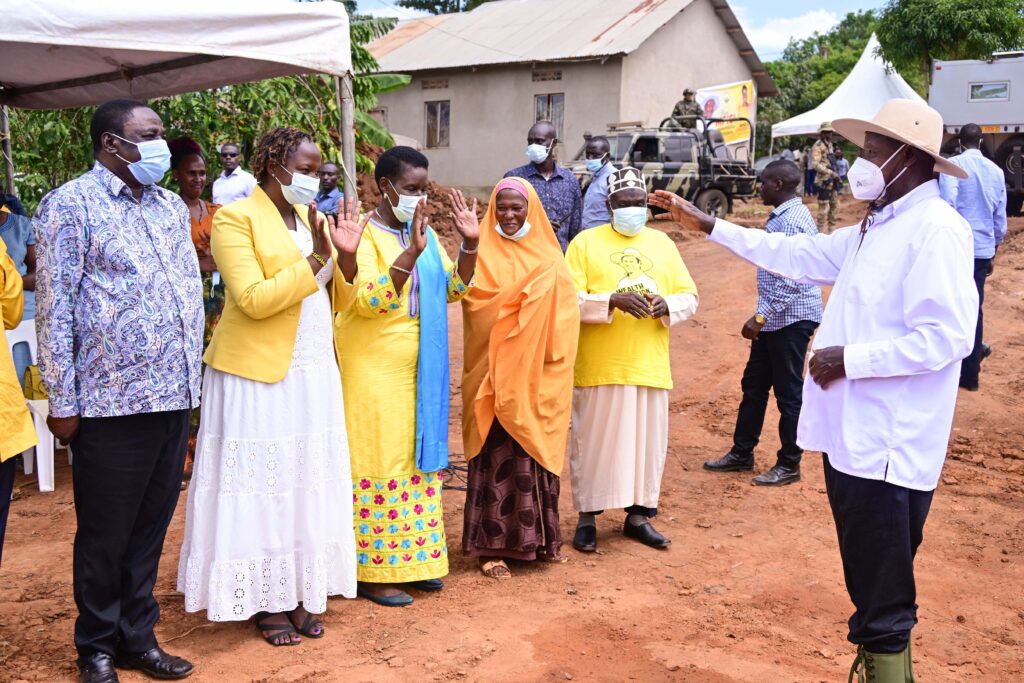
Altogether, his integrated four-acre farm generates a gross income of UGX 294 million annually. He has also ventured into herbal medicine, producing a locally recognised tooth remedy approved by the National Drug Authority.
Despite his success, Zziwa highlighted ongoing challenges—particularly high transport costs, fluctuating feed prices, and persistent water scarcity. Yet, his farm continues to serve as a vital demonstration site, training and motivating fellow farmers in the region.
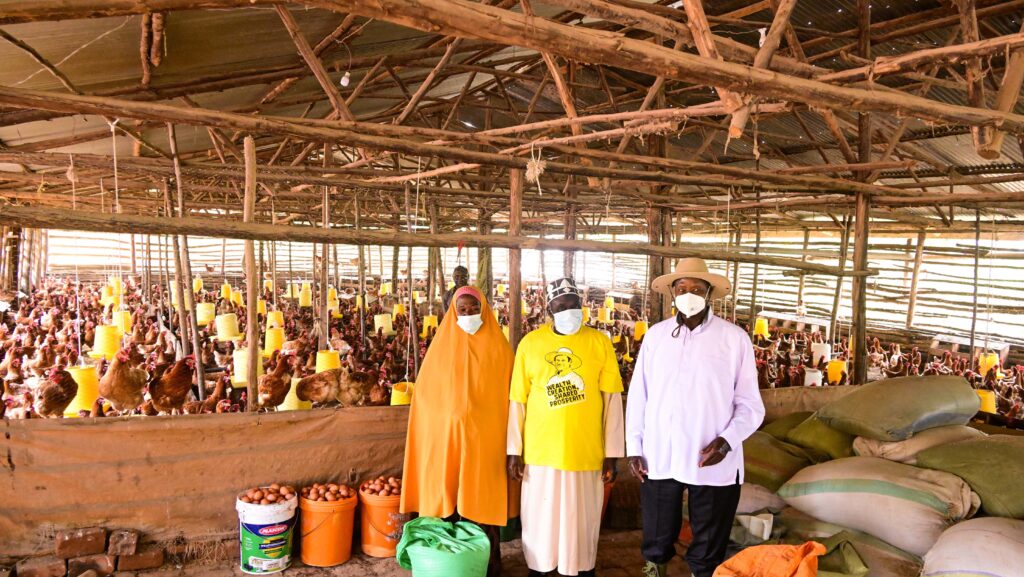
Former Mawokota North MP, Hon. Amelia Kyambadde, praised the President’s commitment to economic empowerment through farming but urged more government investment in rural infrastructure, including electricity, water, healthcare, and vocational education for youth. She proposed a new hospital, ferry service, and youth training hub in the area.
President Museveni reaffirmed his government’s dedication to rural transformation and wealth creation, emphasising that empowering households to become economically self-reliant remains central to Uganda’s development vision. “Small land doesn’t mean small income,” Museveni said. “With the right strategy, even four acres can change lives.”
